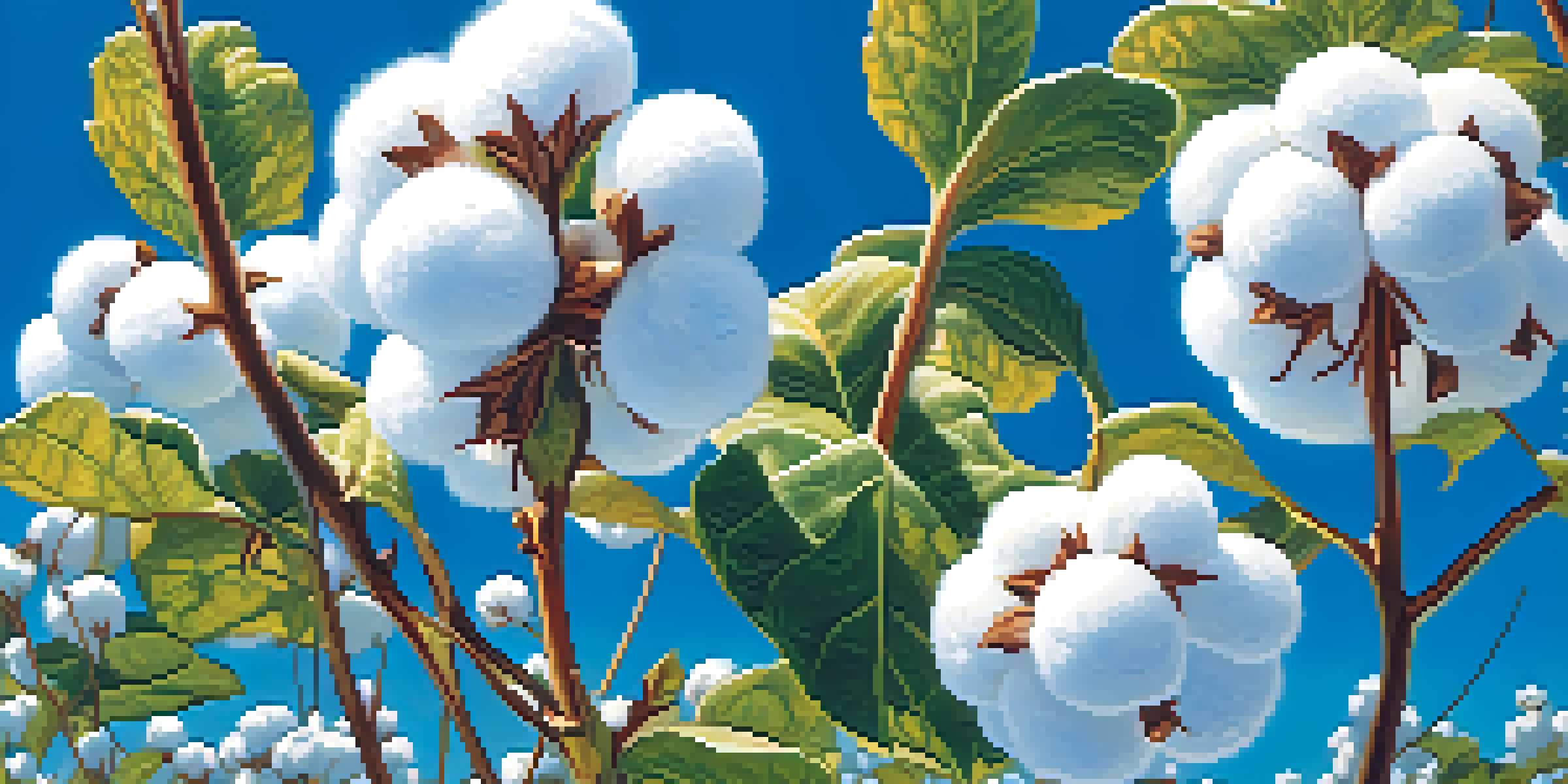The Role of Organic Cotton in Sustainable Fashion Practices

Understanding Organic Cotton and Its Benefits
Organic cotton is grown without synthetic fertilizers or pesticides, making it a healthier choice for the environment. By using natural farming methods, it reduces the chemical load on our ecosystems and promotes biodiversity. This type of cotton is not only better for the earth but also safer for farmers and communities involved in its production.
The Environmental Impact of Conventional Cotton
Conventional cotton farming often comes with a hefty environmental price tag, including soil degradation, water pollution, and high water usage. In fact, it accounts for about 24% of the world's insecticide use, which can harm beneficial insects and local wildlife. By choosing organic cotton, we can help mitigate these negative impacts and promote a more sustainable agricultural system.
Organic Cotton Benefits the Environment
Organic cotton is cultivated without harmful chemicals, promoting healthier ecosystems and safer conditions for farmers.
The Role of Organic Cotton in the Fashion Industry
Sustainable fashion brands are increasingly turning to organic cotton as a core material for their collections. This shift not only enhances their eco-friendly credentials but also appeals to growing consumer demand for ethically produced goods. By incorporating organic cotton, fashion brands can showcase their commitment to sustainability while providing consumers with stylish, responsible choices.
Consumer Awareness and the Rise of Ethical Choices
Today's consumers are more informed than ever, seeking out brands that prioritize sustainability. This growing awareness has led to an increase in demand for organic cotton and other eco-friendly materials. Shoppers now often consider the environmental impact of their purchases, making it crucial for brands to communicate their sustainable practices effectively.
Growing Demand for Sustainable Fashion
Consumers are increasingly seeking ethically produced goods, leading fashion brands to incorporate organic cotton into their collections.
Certifications and Standards for Organic Cotton
To ensure the authenticity of organic cotton, various certifications exist, such as the Global Organic Textile Standard (GOTS). These certifications help consumers identify brands that truly adhere to organic practices. As a result, shoppers can make informed choices about their clothing, supporting brands committed to sustainability.
Challenges in the Organic Cotton Supply Chain
Despite its benefits, the organic cotton industry faces challenges, including limited availability and higher production costs. These hurdles can impact the pricing of organic cotton products, making them less accessible to some consumers. However, as demand grows, the hope is that increased investment will help address these challenges and expand the availability of organic cotton.
Challenges in Organic Cotton Supply Chain
Despite its advantages, the organic cotton industry faces hurdles like limited availability and higher costs, impacting accessibility for consumers.
The Future of Organic Cotton in Fashion
Looking ahead, the future of organic cotton in fashion appears bright, with more brands committing to sustainable practices. Innovations in farming and textile technologies could further enhance the appeal of organic cotton. As the fashion industry continues to adapt to consumer demands, organic cotton is likely to play a pivotal role in reshaping how we produce and consume clothing.
Conclusion: Embracing Organic Cotton for a Sustainable Future
In conclusion, organic cotton represents a significant step towards a more sustainable fashion industry. By understanding its benefits and supporting brands that prioritize organic practices, consumers can contribute to a healthier planet. Together, we can make fashion more sustainable and responsible, one organic cotton garment at a time.
Organic Cotton Benefits the Environment
Organic cotton farming reduces chemical use, promoting healthier ecosystems and safer conditions for farmers.